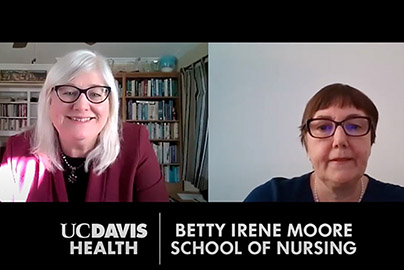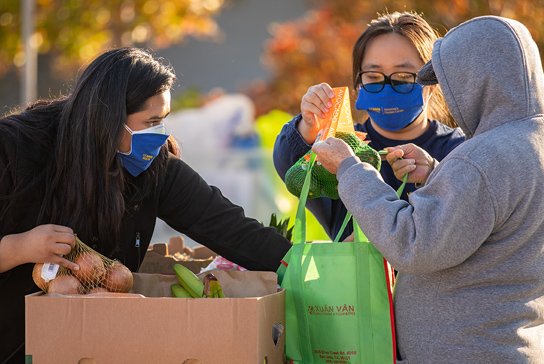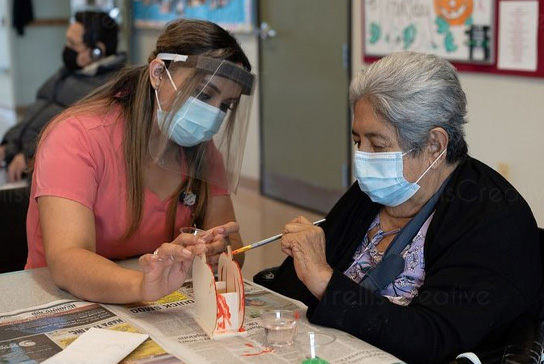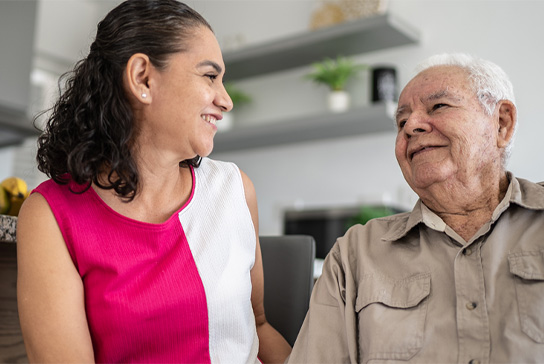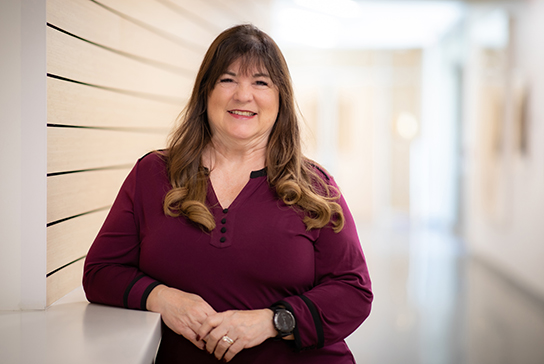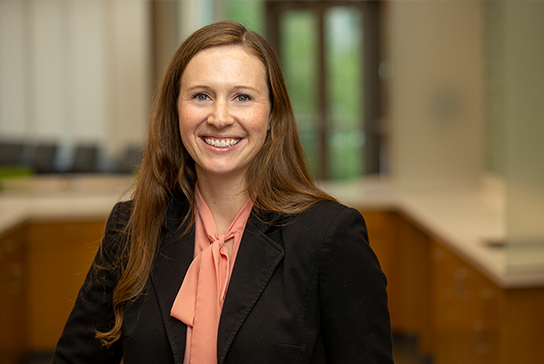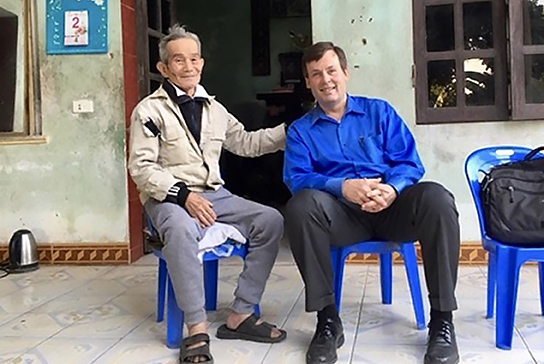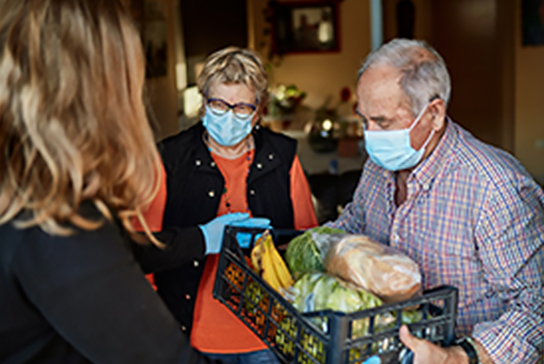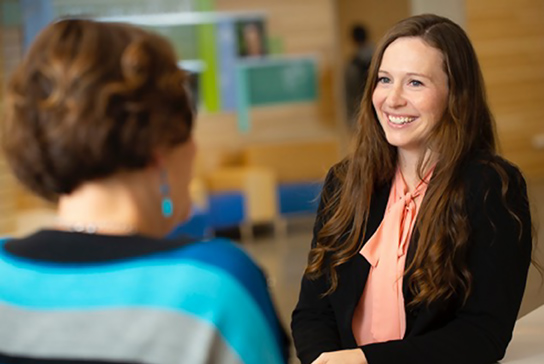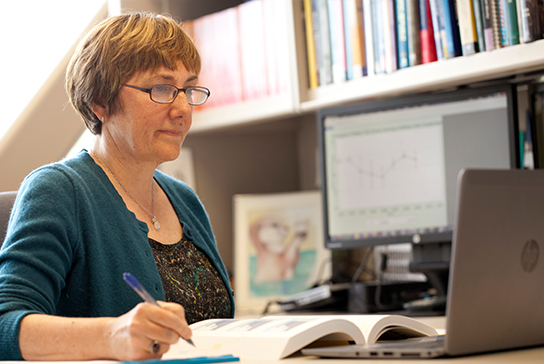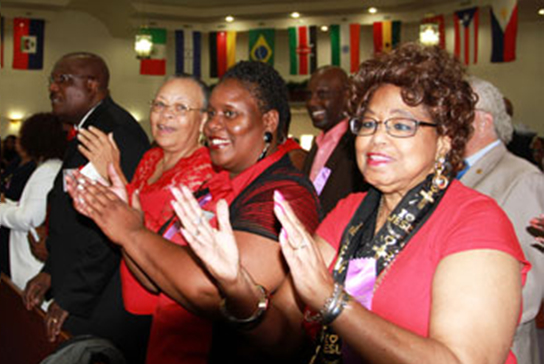Research features
-
Play video
The state of California's caregivers
Read about the new toolarrow_forwardFamily caregivers in California who receive services from a network of support organizations are at higher risk of physical and mental health concerns, including isolation and loneliness. But a unique online tool can better tailor assistance and gather important data to help.
-
Dementia caregiving Vietnamese personal experiences shed insight on caregiving
Read about Oanh Meyer's researcharrow_forwardShortly after the Family Caregiving Institute launched, leaders convened more than 50 caregiving experts at a research summit to identify, define and map out the institute’s research priorities. These priorities now guide the institute’s research agenda.
-
A community for better dementia care
Read about their researcharrow_forward1.7 million caregivers assist someone with dementia. Betty Irene Moore School of Nursing researchers partner with Adult Day Services statewide in a new pilot to create a learning community to develop best practices for these programs and improve resources for agencies that deliver this kind of service.
-
Enhancing care for older cancer survivors and their caregivers
Read about the researcharrow_forwardAlex Fauer examines whether a combination of geriatric syndrome assessments, coupled with in-person and virtual coaching from community health workers, can significantly improve physical health and quality of life outcomes for patients and their caregivers.
-
A community for better dementia care
Read about their researcharrow_forward1.7 million caregivers assist someone with dementia. Betty Irene Moore School of Nursing researchers partner with Adult Day Services statewide in a new pilot to create a learning community to develop best practices for these programs and improve resources for agencies that deliver this kind of service.
-
Family Caregiving Institute professor seeks to improve care for older adults
Read more about Deb’s workarrow_forwardDeb Bakerjian’s experiences in multiple facets across her career shape her caregiving research and guide her education innovations. As she leads several educational programs at the School of Nursing, she continues to partners with other experts to improve the partnership between caregivers and health providers.
-
Pivotal grant paves way for assistant professor’s independent research
Read more about Julie’s researcharrow_forwardFamily Caregiving Institute faculty member Julie Bidwell takes her caregiving research a step forward with a new National Institutes of Health grant. The Mentored Research Scientist Career Development Award, or K01 grant, is important not only to Bidwell but also to growing the institute’s research programs. The $450,000 award funds Bidwell’s study of hospital-to-home transitions for older adult couples who are managing heart failure.
-
Personal experiences shed insight on caregiving complexities
Read about Oanh Meyer’s researcharrow_forwardOanh Meyer, a researcher with the Family Caregiving Institute at the Betty Irene Moore School of Nursing and the Alzheimer’s Disease Research Center at UC Davis, leads a variety of studies focused on dementia caregiving as well as cognitive and mental health disparities in minority populations. Her work is driven by her own personal experiences caring for her mother, 85-year-old Anh Le, who suffers from dementia.
-
Going global
Read about Ladson Hinton’s researcharrow_forwardPhysician, researcher and social scientist Ladson Hinton discusses his work as associate director for research at the Family Caregiving Institute at the Betty Irene Moore School of Nursing at UC Davis. His career spans two decades focused on caregiving experiences among older adults and their families. Now, Hinton says the institute shines light on the needs of caregivers and how to best support them. He looks to the future when the institute moves its impact to the global level.
-
Coronavirus pandemic highlights gaps in support for caregivers
Read about Heather Young’s researcharrow_forwardHeather M. Young dedicates her career to improving the lives and well-being of older adults. For millions across the country, the coronavirus pandemic left caregivers of frail, older adults with few support services. As she cared for several older adults in her own life, Heather also leaned into her research exploring creative solutions to better support older adults and their caregivers.
-
Help for family caregivers of people with heart disease
Read about Julie Bidwell’s researcharrow_forwardNurse Julie Bidwell shifted her focus from bedside care in an Oregon hospital’s cardiovascular unit to research after discovering the challenges people with heart disease, and their family caregivers, face when discharged from a hospital. She seeks better methods of support for these families to reduce stress for both the caregivers and the patients.
-
Innovative project prepares caregivers for transition from hospital to home
Learn about Elena Siegel’s researcharrow_forwardResearchers from the Family Caregiving Institute seek to help caregivers navigate the move back home following a hospital stay for family members with dementia. Because the transition home often includes a variety of challenges for caregivers, this research project seeks to develop innovative tools specifically for the caregivers.
-
Seeing beyond the person to improve care for people
Learn about Janice Bell’s researcharrow_forwardThe admiration Janice Bell developed for nurses, coupled with her love of research, propelled her to a career in nursing. Her quest to change the way nurses think about health beyond caring for individuals brought her to the Betty Irene Moore School of Nursing at UC Davis. Learn how Bell brings her nursing perspective to caring for people and mentors students in the classroom.
-
Navigating the complexities of advanced-illness care
Read about preparing care navigatorsarrow_forwardIn hopes of improving the quality of life for those nearing its end, the Alameda County Care Alliance launched an innovative church-based care navigator program for congregants and their caregivers. Betty Irene Moore School of Nursing researchers join to develop a health coaching model to train care navigators, as well as design and implement an evaluation of the program.


